MercoPress. South Atlantic News Agency
Tag: Argentine crisis
-
Thursday, July 22nd 2021 - 09:46 UTC
Argentina's economy continues to shrink, but some analysts see recovery imminent

Argentina's Gross Domestic Product (GDP) has fallen 0.7% so far in 2021, which in addition to declines in 2018, 2019 and 2020, has led the country's economy to historic lows.
-
Thursday, March 4th 2021 - 09:24 UTC
Argentina's banks face a tough year: bad loans, inflation and regulations
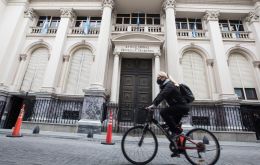
Rising inflation plus bad loans and government regulations anticipate a tough 2021 according to the CEO of Argentina's biggest private bank by market capitalization. “If inflation is high, there is a risk that bank results will fall to very low or negative levels in real terms,” Fabian Kon said in an interview in Buenos Aires.
-
Saturday, January 30th 2021 - 09:55 UTC
Official 2020 inflation in Argentina at 36,1%, but several points higher for the poor half of the country

Argentina registered inflation of 36,1% in 2020, with the declining rate during three quarters, picking up strongly in the last three months particularly basics such as food which is serious since almost half of the Argentine population are cataloged as poor or living below the poverty line.
-
Friday, January 29th 2021 - 08:55 UTC
Argentina expected to grow 5,4% in 2021, far from mitigating pandemic's impact

The International Monetary Fund, IMF, lowered Argentina's growth estimate for this year to 4,5% from its previous 4.9% forecast, according to the World Economic Outlook, WEO, delivered this week and which includes some forty countries, among which Argentina since it is a member of G20.
-
Thursday, January 21st 2021 - 09:20 UTC
Argentina ended 2020 with a 6,5% of GDP budget primary deficit

Argentina's 2020 budget primary deficit reached 6,5% of GDP, according to a release from the Economy ministry, while the overall deficit was equivalent to 8,5% of GDP, given the massive support to the government to address the pandemic a recession.
-
Friday, December 4th 2020 - 09:25 UTC
Poverty in Argentina reaches 44,2% of the population, with special impact on households with children

Some 18 million people, 44,2% of the Argentine population live in poverty conditions, and indigence trapped 10,1%, during the third quarter of 2020, according to the Argentina Catholic University Social Debt Observatory.
-
Saturday, October 24th 2020 - 09:25 UTC
Argentina loves the dollar and has total aversion for its own currency
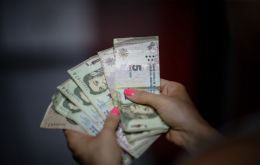
Argentina’s battle to control its currency is upending South America’s second-largest economy, wreaking havoc on everything from household finances to the production and sale of common goods.
-
Tuesday, October 20th 2020 - 09:50 UTC
Argentina has over a million virus cases despite a record quarantine
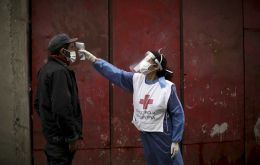
At the extreme end of Argentina in a city known as “The End of the World,” many thought they might be spared from the worst of the coronavirus pandemic. Sitting far from Buenos Aires, health workers in Ushuaia were initially able to contain a small outbreak among foreigners hoping to catch boats to the Antarctic at the start of the crisis.
-
Thursday, October 15th 2020 - 09:59 UTC
September inflation in Argentina reached 2,8% and 36,6% in twelve months
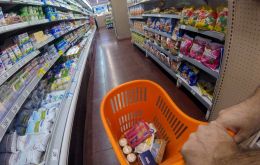
Argentina's inflation accelerated slightly in September from August as some easing of quarantine restrictions allowed the economic activity to begin to recover. The consumer prices rose 2.8% in September and increased 36.6% from a year earlier, Argentina's Indec statistics agency said on Wednesday.
-
Wednesday, October 14th 2020 - 09:27 UTC
Argentine economy to fall 11.8% in 2020 and rebound 4.9% in 2021, according to IMF
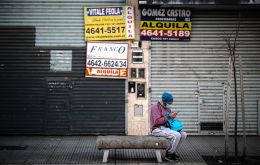
The International Monetary Fund (IMF) forecasts that the Argentine economy will fall by 11.8% this year, and rebound by 4.9% in 2021, the credit agency announced. This was stated in the Economic Outlook Report (WEO) called “A long and difficult road uphill”, where as a result of the pandemic it estimated a fall in world GDP of 4.4% and a recovery of 5.2% by 2021.
